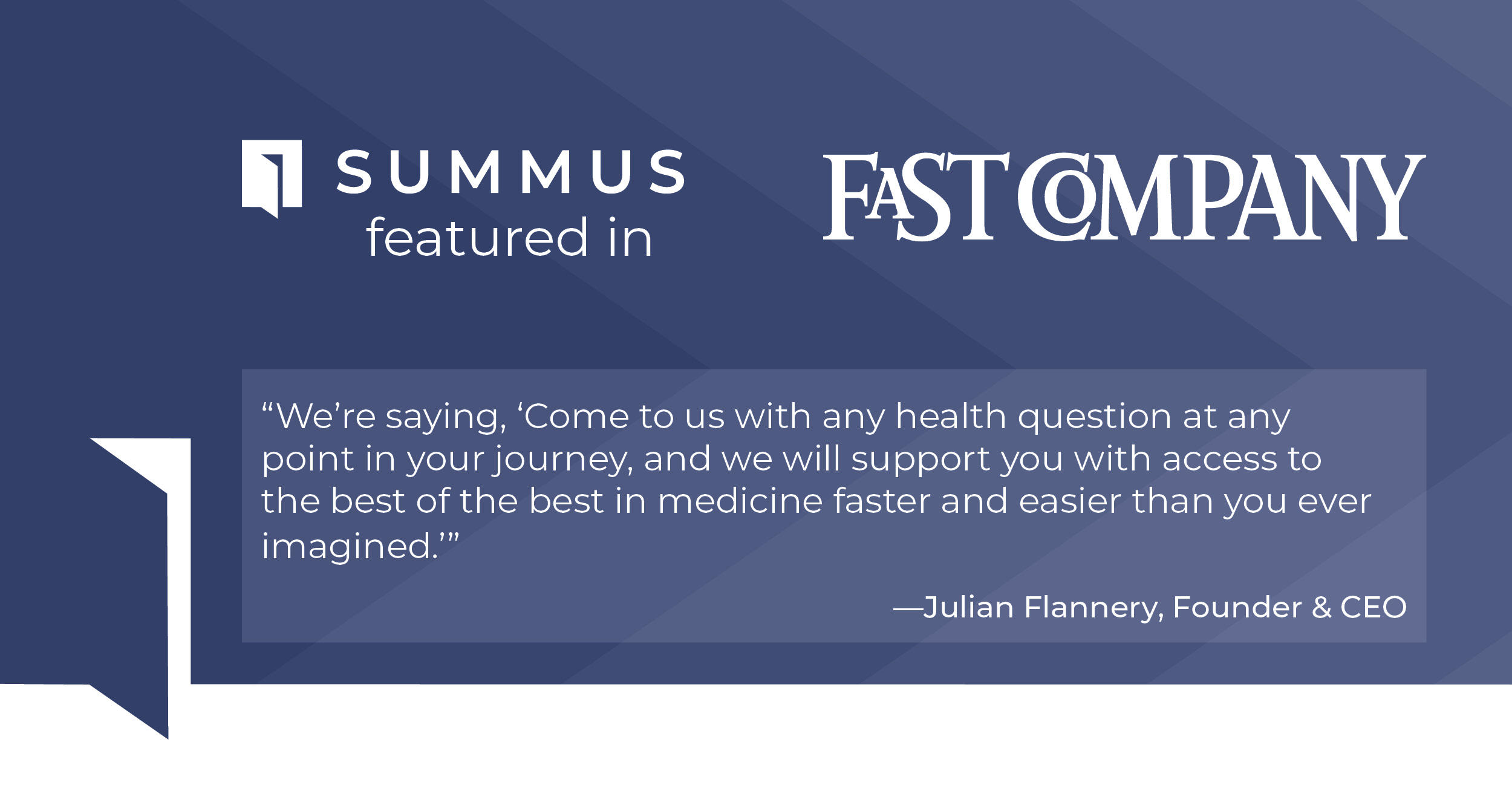Fast Company Executive Board member Julian Flannery wants to accelerate access to specialty medical care.
For many patients in need of specialty care—that is, medical care beyond what they could receive in an average primary care doctor’s office—the search for a specialist can be a minefield of confusion, anxiety, and wasted time, at an agonizing moment when time is of the essence. Patients may be in acute pain or discomfort, or they may have received a distressing diagnosis of a progressive illness. Thus begins the scramble to reconcile a host of complex and overwhelming factors: What kind of specialist is needed? What further tests or procedures need to be done? What types of specialist care will insurance cover? Who is in-network? Who is geographically accessible? Who can see them soonest?
Navigating this matrix of care, access, speed, and coverage can be an unbearable burden on patients and their families, particularly when they are almost by definition facing significant stressors. It shouldn’t be this way, maintains Julian Flannery, CEO of Summus, a virtual care platform that connects patients worldwide with thousands of specialists from more than 50 top academic medical centers.
Summus takes what Flannery describes as a “marketplace approach” to addressing the speed and access problems in specialty care. “We’ve created a simple, elegant, and powerful technology platform that allows us to attract leading specialists across the country and radically accelerate patient access to them to drive better health outcomes,” he says. “We’re saying, ‘Come to us with any health question at any point in your journey, and we will support you with access to the best of the best in medicine faster and easier than you ever imagined.’”
Flannery is keenly aware that in many cases, the patient’s journey to connect with specialized care begins with a lot of panic and confusion. “There’s a lot of uncertainty and surprise, trying to find answers on their own,” he says. “This is where Summus can help. Our mission is to restore the human connection in healthcare. This means making it easier to find a specialist and have the confidence that you have found the best option available for your individual situation.”
Flannery comes from a non-traditional medical background: Growing up in a family of doctors, he developed an immense admiration of medical professionals. Despite entering college as a pre-med major, Flannery found himself gravitating toward finance, economics, and public service. After helping to construct different membership-based expertise marketplace platforms with global reach (serving consulting groups, tech companies, etc.) through Gerson Lehrman Group, Flannery saw an opportunity to look at access to quality specialized care in a new light: could the concept of a marketplace be applied to specialty healthcare? And in doing so, could it solve some of the most pressing problems facing the healthcare ecosystem today?
The access problems for which Summus solves are not exclusively on the patient end: Flannery emphasizes that the platform fundamentally changes access to high-caliber expertise “across multiple different dimensions,” including for doctors themselves. “Some of the best academic medical centers in the world are using our platform today for remote second opinions, or for asynchronous and synchronous peer-to-peer consultations, where they’re connecting their specialists with primary care doctors,” he says. “Primary care doctors, too, can benefit from fast access to specialized expertise to further guide their patients.”
In part because of his family background, participating physicians’ own experience is also top of mind for Flannery. Many specialists in the Summus curated network have expressed that they just want to be able to do more of what they do: provide more expertise, answer more questions, develop more treatments, and help people. Flannery asserts that these specialists can reach more patients and provide quality support through digital platforms that enable them to connect to patients whom they might not otherwise reach—who are in turn eager to connect with them.
Flannery aims for Summus to be a platform that ameliorates many of the burdens facing working physicians today. “It’s really hard to become a great doctor,” Flannery says. “There’s a lot of wear and tear, and a lot of burnout in the system.”
Though Flannery acknowledges that many systemic issues need to be resolved, with no magic panacea in sight, he asserts that Summus fundamentally improves physicians’ experiences. “Number one, we create a really elegant software platform that is very easy for doctors to use,” he says. “Number two, we have deep respect for medicine; we truly believe the most impactful and trusted entity in healthcare is the doctor. And number three, we change the value of expertise. This is the concept of building a marketplace for expertise, where we can attract the best practitioners in medicine to make their time available to help people make good decisions in healthcare.”
The response from the physicians in the Summus network has been overwhelmingly positive and reminds Flannery of his ultimate motivation: to meaningfully impact the work of today’s medical luminaries by allowing them to help more patients. “They tell us, ‘this is why I got into medicine in the first place,’” Flannery says.






